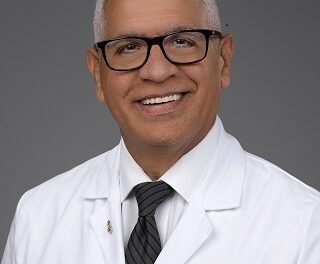A South Florida not-for-profit home and community care organization is offering a new program of private duty services that provide area residents with easy-to-access, individualized care and support whenever they need it, and wherever they want it.
 “Platinum Care Options is a versatile, unique alternative for bringing care into the home, often for people who may just need short-term care assistance and dont meet certain eligibility requirements for publicly-funded programs or who dont want to go through the qualification process for third-party payment,” says Bobbie DAngola, Vice President of Home Health Services for the Doral-based United HomeCare Services, noting that this program builds on the organizations 35+ year history as a pioneer in the home care industry in Miami, now offering a range of over 30 services to more than 5,000 clients a year.
“Weve found that there are a great many people who would benefit from some level of home care assistance, but they dont know how to access services directly,” she adds. “With Platinum Care, its as simple as picking up the phone and telling us what they need.”
Platinum Care services are organized into several levels (see sidebar) and encompass everything from care management, home health aide services and nursing care, to nutrition coaching and counseling. Clients choose what they want, where and for how long.
“For example, our services can be delivered to a hotel in case a visitor is injured during a vacation, or even in a hospital or assisted living facility, augmenting other programs or services that are already being provided to the client,” says DAngola. “Services are billed to directly to clients at a competitive hourly rate.”
“Platinum Care Options is a versatile, unique alternative for bringing care into the home, often for people who may just need short-term care assistance and dont meet certain eligibility requirements for publicly-funded programs or who dont want to go through the qualification process for third-party payment,” says Bobbie DAngola, Vice President of Home Health Services for the Doral-based United HomeCare Services, noting that this program builds on the organizations 35+ year history as a pioneer in the home care industry in Miami, now offering a range of over 30 services to more than 5,000 clients a year.
“Weve found that there are a great many people who would benefit from some level of home care assistance, but they dont know how to access services directly,” she adds. “With Platinum Care, its as simple as picking up the phone and telling us what they need.”
Platinum Care services are organized into several levels (see sidebar) and encompass everything from care management, home health aide services and nursing care, to nutrition coaching and counseling. Clients choose what they want, where and for how long.
“For example, our services can be delivered to a hotel in case a visitor is injured during a vacation, or even in a hospital or assisted living facility, augmenting other programs or services that are already being provided to the client,” says DAngola. “Services are billed to directly to clients at a competitive hourly rate.”
 People recovering from outpatient surgery are a prime example of the types of clients that benefit from Platinum Care Options, explains DAngola. According to the National Center for Health Statistics, 31.5 million people in the U.S. underwent outpatient surgery in 2006 and the numbers remain similar today. Physicians are usually the first to hear about their patients concerns for how they will manage at home during recovery. With limited mobility and fresh wounds, care support is usually needed and in the absence of family caregivers this need is more pressing. Increasingly, physicians are helping ease their patients worries by recommending the use of in-home, short-term, recovery care services immediately after their surgery.
“Clients can customize their post-surgical recovery packages to make the transition from hospital to home a little more comfortable for them so they are not worried about their limitations with daily activities,” says DAngola. “Care managers will develop a care plan program by assessing the needs of clients and talking with them about the types of services that would best meet their needs.”
Beyond the immediate health benefits that Platinum Care Options offers to clients, DAngola says the program also helps United HomeCare reach out to more clients with limited ability to pay for services.
People recovering from outpatient surgery are a prime example of the types of clients that benefit from Platinum Care Options, explains DAngola. According to the National Center for Health Statistics, 31.5 million people in the U.S. underwent outpatient surgery in 2006 and the numbers remain similar today. Physicians are usually the first to hear about their patients concerns for how they will manage at home during recovery. With limited mobility and fresh wounds, care support is usually needed and in the absence of family caregivers this need is more pressing. Increasingly, physicians are helping ease their patients worries by recommending the use of in-home, short-term, recovery care services immediately after their surgery.
“Clients can customize their post-surgical recovery packages to make the transition from hospital to home a little more comfortable for them so they are not worried about their limitations with daily activities,” says DAngola. “Care managers will develop a care plan program by assessing the needs of clients and talking with them about the types of services that would best meet their needs.”
Beyond the immediate health benefits that Platinum Care Options offers to clients, DAngola says the program also helps United HomeCare reach out to more clients with limited ability to pay for services.
United HomeCare Services Platinum Care Options
Tranquility: A Recovery Aide provides 8 hours of post-op personal care including:
Rejuvenation: Offers 12 hours of personal assistance by including Tranquility package benefits plus:
Revitalization: Delivers 20 hours of Recovery Aide assistance, combining Tranquility and Rejuvenation packages plus:
|


























